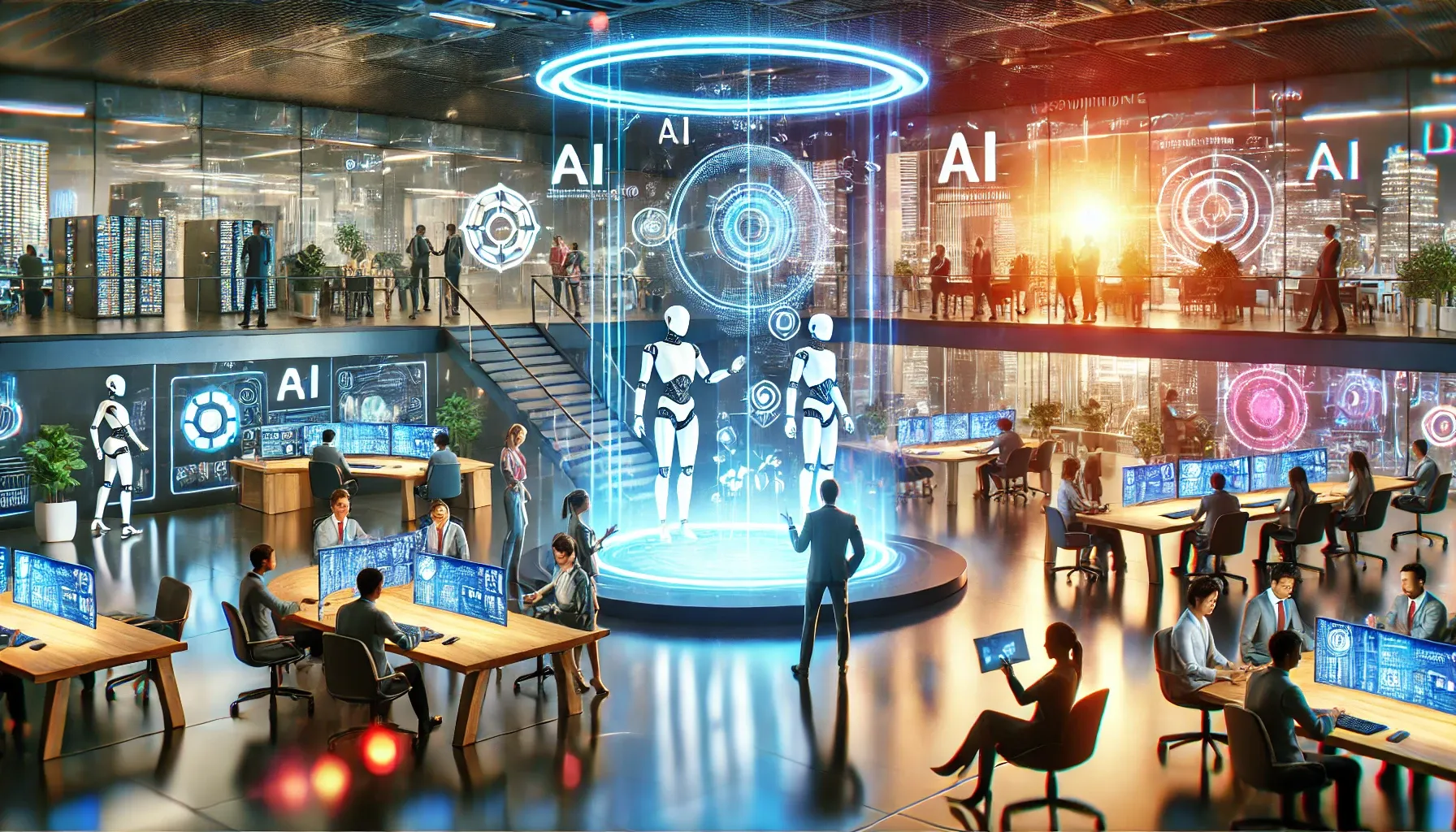
The advent of Artificial Intelligence (AI) is not just a technological revolution; it’s a workforce transformation. From automating mundane tasks to creating entirely new industries, AI is redefining job roles across sectors. While the debate around AI replacing jobs continues, the reality is more nuanced—AI is not just taking jobs but also creating opportunities for growth and innovation.
AI’s influence on the job market can be categorized into two main effects:
AI excels at performing routine and repetitive tasks with speed and precision. For example:
This automation frees up human workers to focus on higher-value activities, such as strategic planning, creativity, and decision-making.
While AI automates certain roles, it also creates demand for new skills and job categories, such as:
These emerging roles require specialized knowledge and offer lucrative career paths for those willing to adapt and learn.
AI is revolutionizing diagnostics, drug discovery, and patient care. For example, radiologists now collaborate with AI tools to identify anomalies in medical images with greater accuracy.
Fraud detection, algorithmic trading, and customer insights are increasingly driven by AI, transforming roles within banks and investment firms.
Robots powered by AI are enhancing production lines, performing tasks that were once labor-intensive. This is reshaping roles from manual labor to robot management and maintenance.
AI is enabling personalized learning experiences. Teachers are leveraging AI tools to identify student strengths and weaknesses and tailor lesson plans accordingly.
As AI continues to reshape industries, professionals must focus on acquiring the following skills:
Technical Skills
Soft Skills
Digital Literacy
Continuous Learning
Organizations must proactively prepare their workforce for AI-driven changes. Key strategies include:
AI is not about replacing humans; it’s about augmenting human capabilities. The jobs of the future will emphasize creativity, emotional intelligence, and strategic thinking—qualities that machines cannot replicate. By embracing AI and adapting to its challenges, individuals and businesses can thrive in this transformative era.

Don't miss out on the latest news and updates from Techmines Technologies LLP! Subscribe to our newsletter and stay up-to-date on our latest services, web development trends, SEO strategies, and much more. Sign up now and be the first to know!
India Address :
427 , 5 Square Point, M.V Circle,
opp. Anjani Green Party Plot, Jahangir Pura,
Surat, Gujarat 395005
Phone :081416 35874
Email :info@techmines.co.in
© 2024 Created By Techmines Technologies LLC